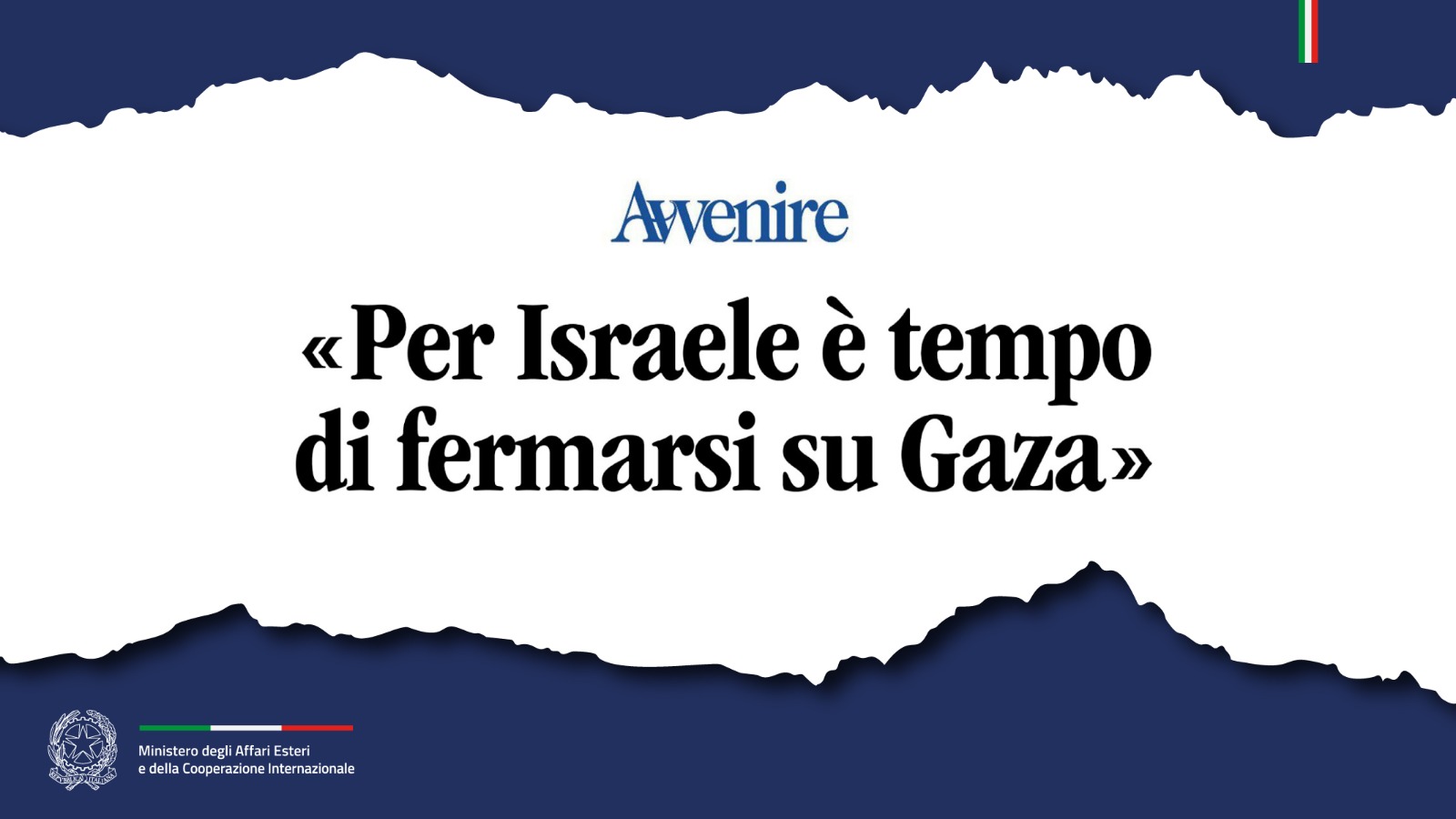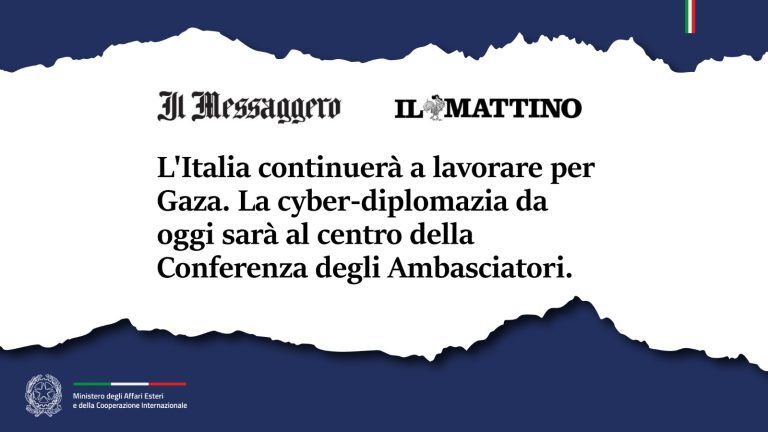With Italy’s direct involvement, there is hope for a truce in Gaza, without backing down from the goal of “two peoples, two states”. Meanwhile in Syria, the groundwork for chaos have been laid after Israel’s attack on Hezbollah in Lebanon. As for Beirut and Gaza, Italy is working to bring the parties to the table, leveraging plans for reconstruction. During the Ministerial Conference to Enhance the Humanitarian Response in Gaza, Italian Deputy Prime Minister and Minister of Foreign Affairs and International Cooperation Antonio Tajani’s day in Cairo was marked by concerns and some glimmers of hope. The Italian government also delivered a message to the Kremlin.
In an interview with “Avvenire” on 30 November, Abu Mazen praised Italy’s role in providing humanitarian aid in Gaza and called for a diplomatic operation to hold the Strip, the West Bank and Lebanon together. What is Italy’s position?
“Since the morning of 7 October, after Hamas’ horrific aggression, Italy has offered support to Israel by reiterating that the Jewish state has the right to defend itself, to respond to the terrorist attack, and to eradicate the threat in Gaza. However, the war must come to an end. Israel must admit that its military objectives have been achieved, and that now – after the truce in Lebanon – it is possible to stop operations in Gaza. We have asked them for a proportionate military response, and this has not always been the case.”
What about humanitarian aid?
“We have been working to operationalise our humanitarian action since the outset. We established a coalition with international organisations for what is now a priority – to bring assistance to the Palestinian people. The ‘Food for Gaza’ initiative was created with two aims in mind, the first being to help the exchange between UN agencies present in Rome in the food and agriculture sector (FAO, Pam) with institutions dedicated to health such as the International Red Cross and Red Crescent. The second aim was to collect tons of food and medical aid, which we started to send to Gaza. We have used Cooperation funds to provide 15 trucks to the UN WFP for the distribution of food inside the Strip. We directly involved both the Palestinian Authority and the Israeli government. Although they are two de-facto rival political entities, they will have to be the political pillars on which to found exchanges and negotiations to arrive at the ‘two peoples, two states’ solution.”
In Cairo, you spoke of post-war and reconstruction. How does the aid you mobilised get there? Are there any indications from diplomacy in the direction of a truce?
“We hope that the ceasefire talks in the Strip will proceed faster. There is a new proposal, a new Egyptian initiative. The crossings must be opened, and the distribution of aid must be allowed.”
What does the operation in Syria mean now, and what are the repercussions you fear most?
“The advance of the jihadist militiamen follows what has happened in Lebanon in recent months. Israel’s attack on Hezbollah forced the Shiite movement to pull its soldiers out of Syria, where they were protecting many areas controlled by Assad. The result is what we have seen in the last few days – the militiamen have moved quickly southwards from Idlib, entering Aleppo and aiming to advance further. The result will predictably be that other Assad-linked forces will spring into action. The Russians have started with aerial bombardments, and the press reports that Shia militias allied to Assad have entered Syria from Iraq. Things have once again changed on the Syrian battlefield, and all the local players have the backing of big regional or international players. There will be a new phase in the civil war, and the fallout is very clear.”
What fallout? You mentioned the displacement of thousands more refugees.
“This is very likely. But first of all, the Syrian people will still suffer death and destruction. They have been living in a totally precarious condition since 2011. For years, a stream of refugees has found shelter in Lebanon, which has taken in hundreds of thousands of people at great cost. The refugees were returning to Syria, which had in fact become safer. Alas, civil war is once again ravaging the country. The states in the region must find a way to stop this madness, which will lead to new and dangerous problems for everyone.”
Is a new season of civilian exoduses from Syria about to begin? What signs are there?
“It is a fact that this movement will cause new flows in many areas of the Middle East, towards the Balkans and Europe at large. Syria could once again become the epicentre of a disaster that we have an obligation to stop.”
Recent operations have not spared Church structures. You immediately condemned these attacks, asking those involved to safeguard the civilian population. Have you received any replies?
“For now, we believe that there is no direct intention to hit churches, religious institutes or the last remaining Christians in that country, who are very important to us. I am in constant contact with the Nuncio and Cardinal Mario Zenari, and I have spoken with the Custos of the Holy Land, Father Francesco Patton. Our ambassador in Moscow was received at the Ministry of Foreign Affairs.”
What was the purpose?
“To ask the Russian Federation’s government to preserve religious sites and buildings throughout the country, and not to involve the population. We hope that our appeal will be accepted.”
Back to Lebanon. Do you think the ceasefire can stand despite the skirmishes of the last few hours and the Syrian escalation?
“Together with the United States, Italy is also pressing the parties for the ceasefire to be observed, consolidated and made permanent. In Cairo, the Lebanese Minister of Foreign Affairs asked Italy to start work on a conference to begin preparing for reconstruction. In Lebanon, as in Gaza, the international community must contribute to assistance and reconstruction. But I repeat, it is mandatory to stop the wars, and to resume political and diplomatic exchanges. Italy will do its part.”




